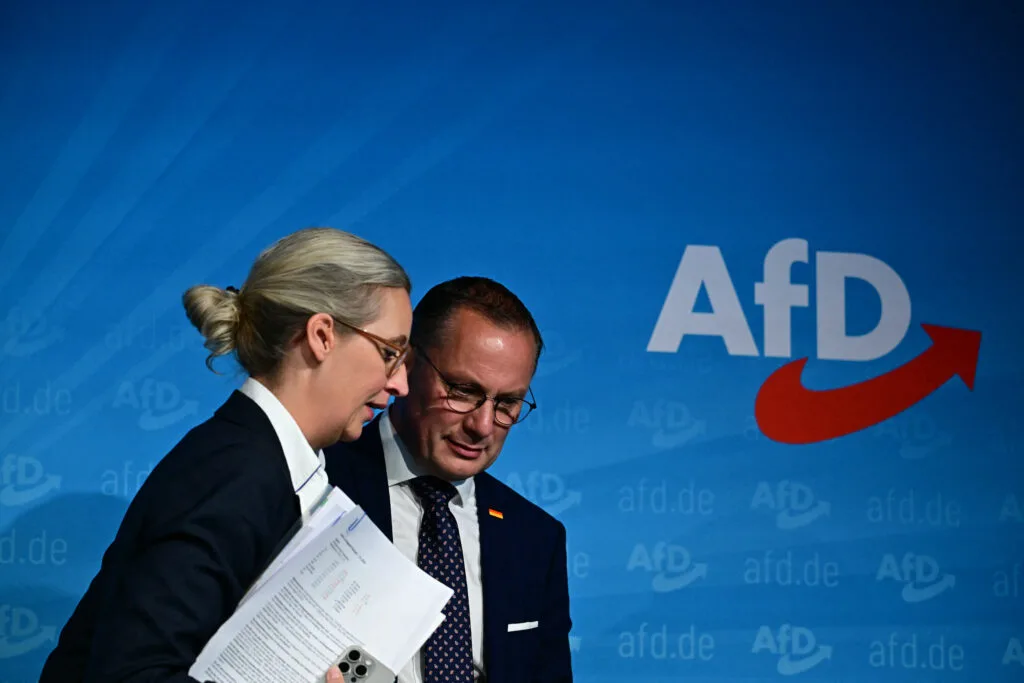Brussels – The political earthquake unleashed by Donald Trump has also impacted Germany. The earth tremors have spread from the epicenter in Washington across the ocean and, after shaking Brussels, are shaking the very foundations of the German economic model as we have known it in recent years.
The incoming chancellor, Friedrich Merz, and his future Social Democratic partners have put a tombstone on the orthodoxy of balanced budgets and the debt cap, which they themselves put into the Constitution 16 years ago. However, the CDU and SPD are in a race against time paved with unknowns.
The rearmament in Europe and Germany
The butterfly effect of the Trump 2.0 is already causing epochal upheavals in the Old Continent. On yesterday’s day (March 4), two major investment plans were announced in as many capitals.
In Brussels, EU Commission President Ursula von der Leyen unveiled her roadmap on the rearming of the Twenty-Seven, which she calculated should be worth some €800 billion over four years, to deal with the possibility of a U.S. withdrawal from Europe. She also confirmed the activation of the safeguard clause of the Stability and Growth Pact (SGP) for member states’ defence investments, allowing governments to take on debt without risking infringement proceedings.

In the evening, something equally unusual happened in Berlin as well. After a session of exploratory talks to form the next German executive—a “big coalition” between the Union Christian Democrats (CDU/CSU) and the Social Democrats of the SPD, the only possible outcome given the results of last month’s elections—future Bundeskanzler Friedrich Merz announced his intention to raise hundreds of billions in the markets to boost the defence sector and invest in Germany’s infrastructure and industry to boost the economy.
The end of the debt break
Speaking to the press alongside Markus Söder (the head of the Bavarian CSU) and the Social Democratic co-leaders, Lars Klingbeil and Saskia Esken, the CDU secretary announced that a motion will be submitted to the Bundestag to modify the debt break, a constitutional mechanism that prevents German governments from borrowing more than 0.35 per cent of GDP and imposes the ironclad discipline of a balanced budget.
“We are aware of the magnitude of the tasks ahead of us and we want to take the first steps and make the first necessary decisions,” Merz said, adding that “given the threat to our freedom and peace on our continent, the mantra of our defence must be: whatever it takes,” quoting the famous “whatever it takes” uttered by the then ECB number one, Mario Draghi, in the darkest hour of the euro crisis. For Söder, “we are sending a signal to friends and enemies alike: Germany is here, Germany will not retreat.”
“Germany and Europe must quickly strengthen their defense capabilities. @CDU, @CSU and @SPD will introduce a motion to amend the Basic Law to exempt defense spending above 1% of GDP from the debt brake. In view of the threats to our… pic.twitter.com/nWYHi7srC2
– Friedrich Merz (@_FriedrichMerz) March 4, 2025
This is a change of pace of historic proportions, described by EuroIntelligence as “the biggest turnaround in Germany since 1969,” when the revaluation of the German mark began. Ironically, the debt brake had been introduced in 2009, i.e., in the initial phase of that sovereign debt crisis that threatened to collapse the Eurozone, by a similar Union-SPD coalition (led then by Angela Merkel) to stabilise Berlin’s public accounts.
A U-turn for the Christian Democrats, who have traditionally stood (even during the last election campaign) in defence of a rigid and conservative budget policy, making the country a champion of rigorism and austerity in Europe. From the SPD, Klingbeil said this provision will be reformed by the end of the year “to prevent it from becoming a brake on investment” and economic growth in Germany, asphyxiated by two years of recession.
The recipe of the new government
Specifically, the proposal calls for not applying the constitutional limit on defense spending that exceeds 1 per cent of GDP. Considering the 2024 figures, all financial maneuvers affecting this sector exceeding 45 billion would thus be “saved.” In addition, a similar “facilitated” budget space would also be created for state governments, setting its ceiling at 0.35 of GDP. Currently, the 16 Länder that make up the Bundesrepublik are not allowed to spend a single penny in deficit.

But “the additional defence spending can be absorbed only if our economy returns to a stable growth path as soon as possible,” Merz said. “In addition to a radical improvement in competitive conditions, this requires rapid and sustainable investment in our infrastructure,” he explained.
How? With a 500-billion special fund to cover the industrial and infrastructural investments the country will have to sustain in the coming years, a sort of New Deal in Berliner sauce. Finally, the leader of the CDU urged the other political forces to approve an aid package worth between 3 and 3.5 billion to Kyiv as soon as possible, which had been stranded at the Bundestag for weeks because of the election date last February 23.
Next steps
But the road to realising these ambitious plans is by no means downhill. Both the debt brake reform and the creation of the “monster” fund will be presented in the House before the current legislature expires at the end of the month, lest they be shot at by the AfD and the Linke (i.e., the ultra-right and the radical left) patrols, who turned out in greater numbers in the polls.. One opposes increased debt, the other increased military spending.

The two motions will thus have to win the support of the Greens or the FDP liberals: without the votes of at least one of the two parliamentary groups, the two-thirds threshold required to amend the Constitution (Union and SPD currently hold 403 seats out of the 733 total in the hemicycle) would not pass. While the FDP has always opposed changing the debt brake, the ecologists might support it but will demand something in return (likely more substantial commitments on the climate and environmental front). Moreover, forcing the Bundestag to close such an important game before the new legislature takes office could be challenged before the Constitutional Court.
Be that as it may, Merz’s and von der Leyen’s moves are part of the broader political landslide caused by the new U.S. administration. Donald Trump has made it unequivocally clear to European allies that they will have to take into their own hands responsibility for the security of the Old Continent. And the chancelleries on this side of the Atlantic, in the grip of the blackest panic, are desperately running for cover, as evidenced by the frequency of informal summits convened in recent weeks. The next appointment is for tomorrow (March 6) in Brussels, with the Extraordinary European Council at which the Twenty-Seven will discuss, indeed, of defence and Ukraine.
English version by the Translation Service of Withub








